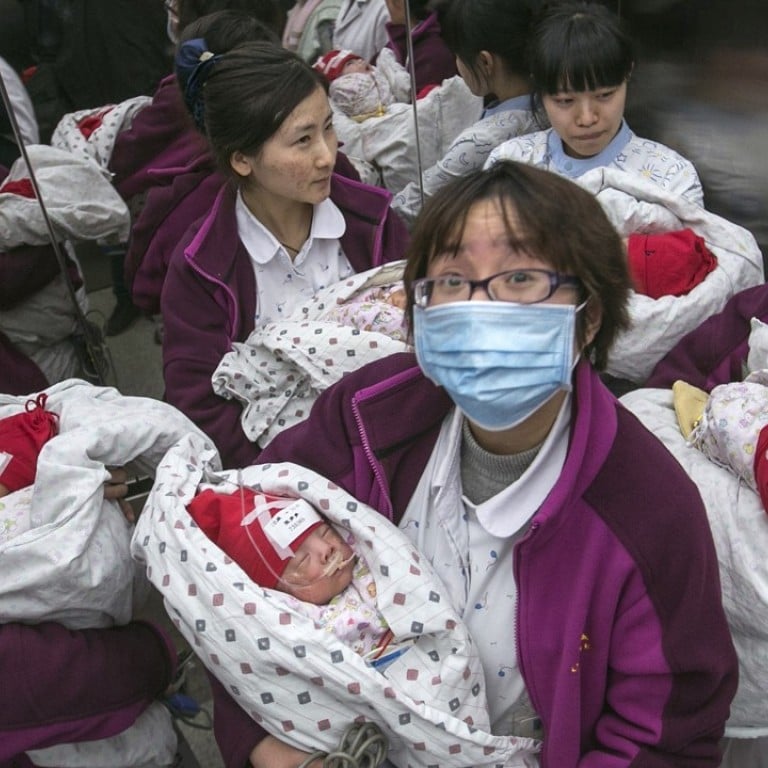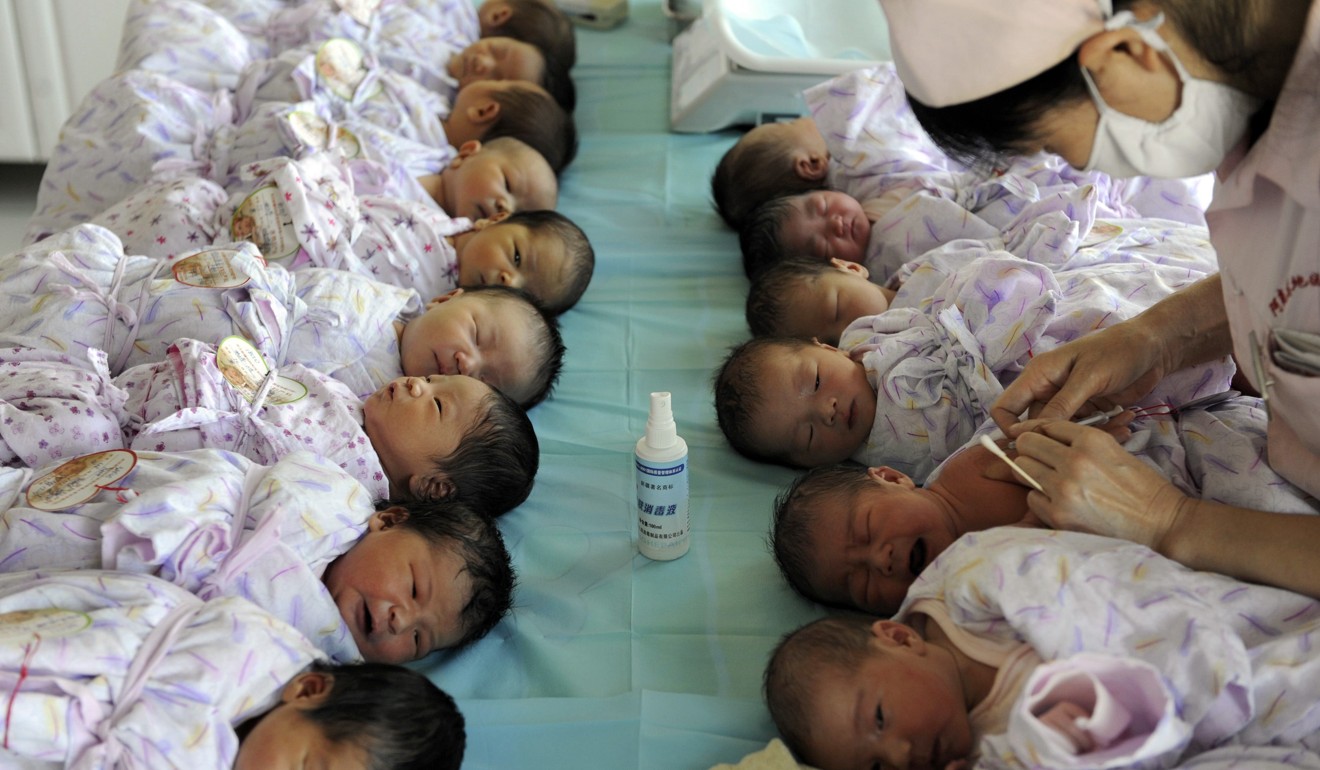
China must relax birth controls to defuse population time bomb, top think tank warns
Researchers say two-child policy is falling short and more action needed to balance rapidly greying society
China must take urgent action on birth controls to cope with the “grim” reality of its rapidly ageing society, a top government think tank has warned in one of the most prominent appeals yet for scrapping family planning restrictions.
In its annual “blue book” report on Chinese society issued on Friday, the Chinese Academy of Social Sciences said the country must consider either relaxing birth controls further or getting rid of them entirely.
China replaced its decades-old one-child policy two years ago, allowing all couples to have two children. But the report said that even that change was not enough to meet social needs.
“In the face of the rapid ageing of the population, studies must be conducted into how to refine the existing birth control system, or fully relax birth controls in a timely manner,” the report said.
If the ageing trend was not reversed and China’s population target could not be met, the country would struggle to meet Chinese President Xi Jinping’s goal for China to become a modern society by 2035, and a powerful modern nation by 2050, it said.
By last year, 16.8 per cent of China’s population was aged 60 years or above while the average life expectancy was 76.5 years. That’s up from 15.5 per cent of the population in 2014. Life expectancy was 74.8 years in 2010.
In addition, the country’s labour force – people aged 16 to 59 – shrank for the fifth year in a row last year to 907.47 million, down from 910.96 million a year earlier. That pool is expected to shrink to 700 million by 2050, a “sharp decline” from the estimated 830 million in 2030, according to the Ministry of Human Resources and Social Security.
China is aiming to have about 19.2 million births each year to balance the growing number of elderly people.

The authorities projected the number of births would rise to 20 million each year by allowing all couples to have a second child from 2015.
But so far those projections have not been met – last year the total rose to a record 17.86 million births and the academy does not expect even that momentum to be maintained.
“Births are very likely to take a U-turn after a short period of growth if the existing birth control policy remains unchanged,” the report said.
Researchers from the academy said rising living costs had dented couples’ enthusiasm for having more children.
Some demographers said it was time to abandon all birth limits and offer support to people wanting to be parents.
Ren Yuan, a demographer from Shanghai’s Fudan University, said China needed to develop social support to help parents care for children up to kindergarten age.
“At the current rate, birth control policies can’t have much effect on promoting births. The focus should shift to social policies such as providing social support that can better smooth the link between birth and work,” Ren said.
Demographer Chen Youhua, from Nanjing University, said the government needed to step in to help women facing discrimination from employers reluctant to allow maternity leave.
“The government should establish a compensation system ... to make raising children easier,” Chen said.

